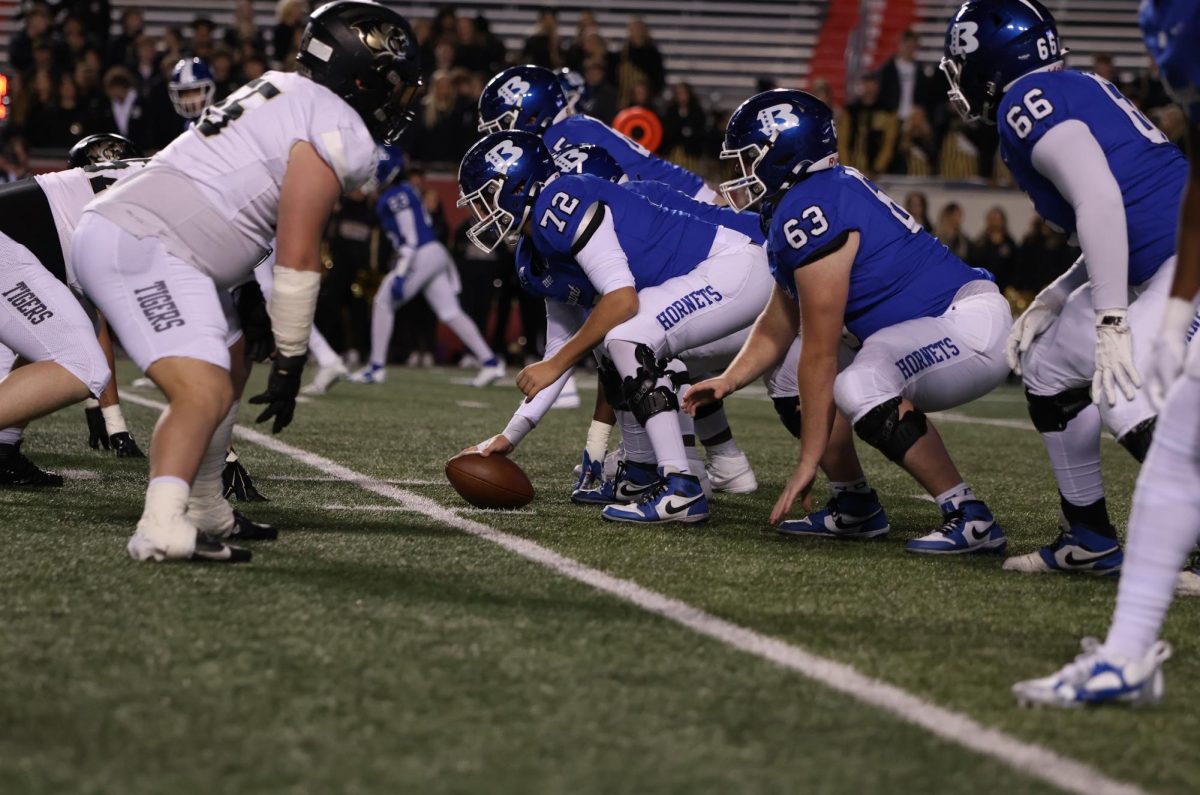
For the past two years, athletic director Mike Lee and maintenance and facilities director Bob Padgett have taken the initiative to protect student athletes in the fight against MRSA (Methicillin-resistant Staphylococcus aureus) or staph, a bacterial infection that can cause skin infection like boils and abscesses.
More serious forms of the bacteria include internal infections such as pneumonia, bone infections and heart infections. As athletic director, Lee said he believes in the safety of school athletes.
“As prominent as information is now, MRSA or staph is a dangerous problem in athletic locker rooms and meeting rooms that we face,” Lee said. “I can tell you that the school district of Bryant goes above and beyond in fighting this potential problem.”
Lee gave immediate credit to Pageant for the district’s procedures and precautions.
“We have a monthly application of staph preventative that is put on our stadium Astroturf and our indoor Astroturf,” he said. “We also have annual applications that we put in our athletic meeting rooms, coaches’ offices, athletic locker rooms and our weight rooms that our student athletes carry out their athletic duties in.”
The district spends between $10,000 and $15,000 protecting its athletes from bacterial infection, so Lee said the money spent on this project is much more than other surrounding schools.
“I’ve been a part of several school districts. Bryant School District goes above and beyond any other place I’ve ever been associated with,” he said. “We feel it’s necessary. It’s not something our district is mandated to do by anyone, but we choose to do that for our athletes.”
Shared equipment is an important concern when fighting staph. Lee said the football coaches ship all helmets to Riddell, the athletic company that makes the equipment, every year to be thoroughly sanitized before being used the next season. After 10 years of use, coaches dispose of the helmets automatically. Shoulder pads are cleaned throughout the year by coaches and players, then cleaned more thoroughly at the end of the season before being put up for storage.
Coaches, team managers and volunteer parents specially treat game uniforms. Lee said the washer has a special application for cleaning uniforms, eliminating germs without damaging the fabric.
Lee explained several reasons why the district commits to the health of student athletes.
“Number one, staph is very dangerous with regards to health and benefit of the student athlete,” he said. “Second, it spreads so rampantly that an entire team can be affected in a short period of time. As far as winning and losing, that would directly impair it.”
Coach Paul Calley said he strongly believes in the district’s effort against staph.
“It’s not just maintenance people, it’s not just school personnel, it’s us as coaches and players also,” he said. “Making sure we wash our hands and clothes, keep everything clean, don’t share towels and things like that.”
Calley said keeping the football team healthy is a tough task.
“As modest as players are now, guys don’t take showers anymore,” he said. “They go practice, they sweat, they leave pads on and they leave their sweat all over it. They may not take a shower.”
Whether in the locker room before a game or in the weight room to get a workout, student athletes can be assured that the threat of staph is kept to a minimal.
“We take the initiative to do this because we think our kids are worth it,” Lee said.
Calley said the fight against infection ultimately comes down to the individual.
“The least of our worries is the money when individuals can take it upon themselves to make sure they do the right thing to prevent it,” he said.










